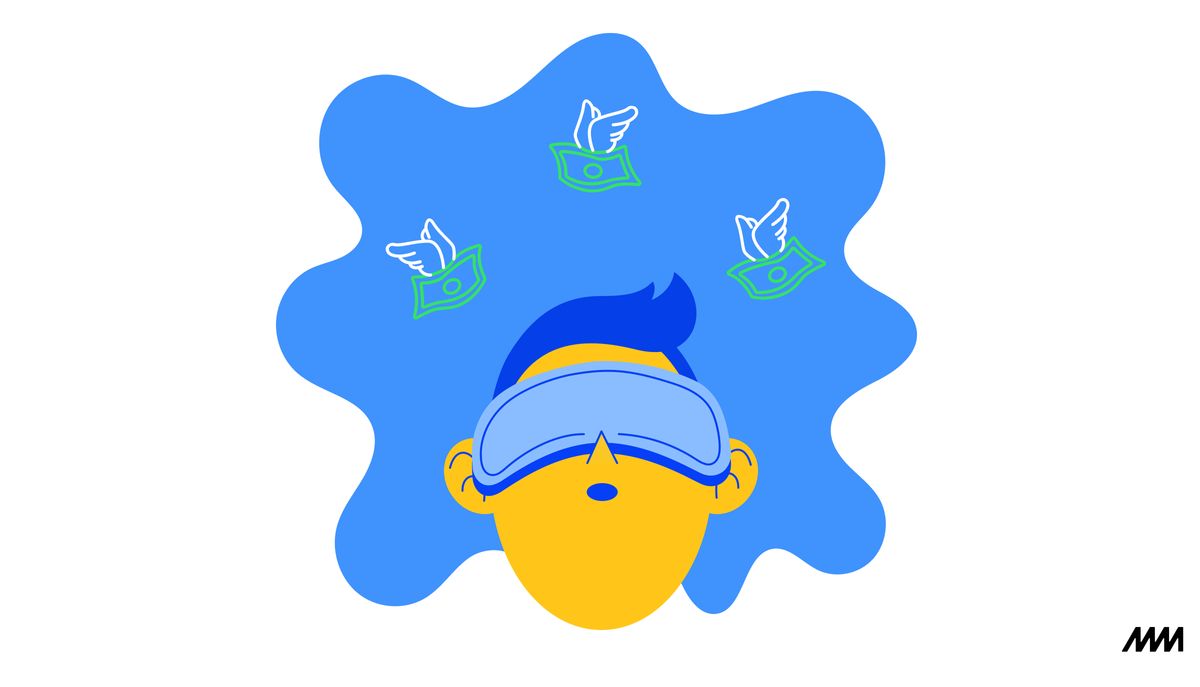Made-up Numbers
A train of thought through Games, Life, and Money

Why do we play games?
This question has made me wander off inside a rabbit hole that, in hindsight, I am lucky to be in. I’d love to take you down the rabbit hole with me in this article. At the end of it, you’ll realise how there lies a beautiful pattern between three essential things – games, life, and money.
Come with me on this journey, and let me show you some hidden connections among which we live.
Games
“You have to learn the rules of the game. And then you have to play better than anyone else.” – Unknown
So, back to our original question – "why do we play games?"
You'd be wrong if you think only we (humans) play games. All animals do.
The question is – why?
Games – friendly or competitive – give us the simulation of life, but within safe boundaries. That’s why. Playing is nature’s system to educate us.
We play to learn.
The idea is simple. Life doesn’t give you checkpoints from which you can restart once you die. Also, there are no one-ups. The most it can offer – although very rarely – are second chances, but checkpoints – nope. Once you die, you’re gone. Poof. You’ve got only one shot at survival.
Survival is a fun game, and everybody has to play it. However, surviving is a skill that one must learn. Natural selection has ensured us the tools (our body and mind), but those tools must be honed and learned.
It’s true not just for humans but for all animals. When growing up, the offsprings race amongst themselves to be prepared for the moment a predator attacks. Off-springs bite (friendly) each other to learn how to avoid attacks on various body parts.
We play games because we are in the middle of another game – Life. So let’s talk about the bigger game.
Life
“You only live once, but if you do it right, once is enough.” – Mae West
Life is a game. And that makes me wonder – how are we keeping the score? How are animals keeping the score? They certainly don’t know numbers (or do they?!).
Believe it or not, a score is kept by nature for everyone who plays the game of life, be it other animals or us. What is that score? Your age.
Age is a score. It’s just nature's way of keeping a score. The higher this is, the more implies you’ve better survival skills.
It is where humans start to differ from the rest of the animals. With advancements in life and technology, we live in abundance. Survival is not an everyday struggle. The game of life has become boring. We need more games to play and scores to keep.
What other scores do we keep?
Money
“Anything that just costs money is cheap.” – John Steinbeck
If I ask who is more worthy – Elon Musk or Jeff Bezos – how would you compare their worth?
One way is to compare their net worth, for it is the score they earned in the Game of Money.
Another way is to compare the number of followers they have amassed on social media platforms, for it is the score they earned in the Game of Influence.
Another way is to compare the number of lives they have impacted through philanthropy, for it is the score they have earned in the Game of Giving.
We play many games, and all are scored using a made-up number.
Coming back to the most critical made-up number – money.
It’s such a popular game that almost all human beings have no choice but to play this game. It feeds them. It’s a score we must earn to earn the score in the Game of Life (to survive). Of course, there are some exceptions to this. For example, you could become a monk in the foothills of the Himalayas and opt out of the game. Or win the game and then stop playing.
The reason to win the game is so that you can be free of it.
— Naval (@naval) September 10, 2020
For everyday people – you and me – money is a game that one must play. But, here’s the fun part – you get to pick the currency you want to keep your score.
Choice of score-keeping currency
“First, we make a choice. Then our choices make us.” – Andy Andrews
If you’re in the US, you’d want to keep your score in United States Dollars (USD) and not Indian Rupee (INR), for the former is more robust, and that’s the currency you know other people around you appreciate and accept.
If you’re in India, you’d want to keep some of your score in Indian Rupee (INR) and some in United States Dollars (USD). Because, in the globally connected world, it’s helpful to keep a score in a stronger currency as well, for it can be used/invested in economically more vital nations.
What differentiates one currency from the other? The political boundaries along the surface of the planet.
These are made-up lines along the planet's surface that are finalised using violence. Within each political boundary functions a government that regulates its currency.
In the US, the Federal Reserve regulates United State Dollars. In India, the Reserve Bank of India does the job. So what doesn’t happen is one country controlling another country’s score-keeping unit (currency). That’d be weird!
Imagine the game-makers at Sony’s Playstation division dictating what must happen with the games made at Microsoft’s Xbox division. Those are two different ecosystems, which sometimes touch (that is, the same game can exist in both), but one doesn’t interfere with another.
Need another example? When we happen to inhabit Mars, no matter which is the most powerful country on Earth, only the Martians will regulate people and things on Mars. So it’d be weird for someone on Earth to tell the people on Mars how they should live.
Coming back to Earth.
That’s how the regulation of currencies functions in the geographical dimension. What if I want to play games in another ecosystem – the internet – an ecosystem that is far away from the geographical boundaries. When I create value on the internet for the world, I am the same person making the same value for the world, whether in India or the US.
For example, this blog post you’re reading – does it matter which country I sat in to write it? Maybe I was on a boat or flying over the Pacific Ocean when I typed these words. It doesn’t matter. What matters is that these words were published on the internet.
If someone finds value in it and wants to tip me, what currency should I accept?
The currency of the country I was born in, or,
The currency of the country I am living in, or,
The currencies of the countries I hopped across while writing this blog post, or,
The currency of the internet?
Score-keeping unit of the internet
“Currency of the internet,” you ask? Bitcoin. Or something similar.
After all, it’s just a made-up number to keep a score. And it's my choice which game I want to play.
I am an introvert and find it hard to make a dialogue in real life, but I find my kind of people on the internet. On the internet, it doesn’t matter whether I have earned any score in the currencies controlled by geography, but what matters is whether I have achieved anything in the internet ecosystem.
The question I am left wondering is this –
Why should game-makers of one game (political currencies) control how scores are kept in other games (mathematical currencies)?
It doesn’t make sense.
Let there be as many games as possible, and let the best game win. Or even better – let many games win.
I don't think currencies of the internet have to behave the same way currencies of the geography work. We need more variations and natural selection through the free markets.
It’s time to make more varieties of money. (More on this in my future posts.)
Closing Thoughts
There’s one game that all of us play – Life – and the scores are kept with age.
Then, there are all the other games that we have invented – money, philanthropy, influence, reputation – and we’ll keep a score for them using some made-up numbers.
In the end, these are just that – made-up numbers.
In 2022, when writing this blog post, everyone is playing the game of money. Now, with the internet penetrating our lives so much that we almost have an alternate identity online, my prediction is that we will keep multiple scores.
Just like their net worth, everyone will have a numerical score for their influence, reputation, and other activities they do. We’ll play many games and keep many scores; some of them may touch each other but will not interfere.
I’ll come out as a pure breed of stupid or a genius when making the above prediction, but it had to be made.
We are a species of apes fascinated with made-up numbers. Let there be many!
Note: I have more thoughts on how these made-up numbers will practically change our lives. Subscribe to my blog below to stay updated.
Want to say hello? I am @mohitmamoria on Twitter.

